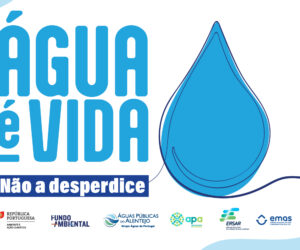 A pilot project for the production of renewable energies is being developed in the Roxo irrigation perimeter, in Aljustrel municipality, in order to reduce farm expenses with electricity.
A pilot project for the production of renewable energies is being developed in the Roxo irrigation perimeter, in Aljustrel municipality, in order to reduce farm expenses with electricity.
The project for the creation of the first Renewable Energy Community in the agricultural area in Portugal brings together the Association of Beneficiaries of Roxo (APR), based in Aljustrel, and the National Federation of Irrigators of Portugal (Fenareg).
The president of ABR, Antonio Parreira, explained that the objective of the project is to mitigate the energy costs associated with irrigation, what, at this time, already around “the 500 euros per megawatt”, by opposition “to 60 euros per megawatt” reported in 2021. “Not only have energy prices soared, how do we run the risk of her missing”, warned.
in this sense, the pilot project that is being developed in the hydro-agricultural exploitation of Roxo, that benefits more from 8.500 hectares in the municipalities of Aljustrel and Ferreira do Alentejo and Santiago do Cac√©m, passes through “extension” of the photovoltaic plant that the association installed in 2018, to pump water from the dam.
“At this time, what we have are follower panels, whose number we will increase. And we are going to install fixed panels and even panels over the main conduit channel” of the use, “what will be innovative”, explained Ant√≥nio Parreira.
The project also provides “the construction of a [central] mini-hydro for the water at the outlet of the dam”, whose execution project is in preparation, forward.
According to Ant√≥nio Parreira, investment in the expansion of the photovoltaic plant should amount to 300 thousand euros and should be completed “within one year”.
In turn, the construction of the mini-hydro plant is estimated at around “two million euros” and, when the project execution “are ready”, the tender for the project will be launched.
To Ant√≥nio Parreira, with the realization of these two investments, the association may come to produce energy “daytime”, with the photovoltaic plant, and “during the night” with mini-hydro plant.
“We will be completely self-sufficient in terms of energy, in other words, we will supply water and energy”, said.
The project also has the added value of, during periods when there is excess energy produced, especially in spring and summer, this can be sold to “other users” and not injected “on the net at a ridiculous price.
“We already have an agreement with a company and the chamber could be another partner, in other words, we will sell energy at prices that, for us, will be advantageous, because, will be higher than what we receive for delivering on the net, while the other partners will pay a lower price” to that practiced by normal suppliers, concluded Ant√≥nio Parreira.


























